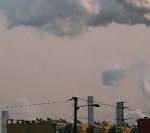 The Tangshan local government has asked Grade 11 A steel mills to reduce steel production by 30 per cent and steel mills of Grade B or lower to reduce sintering activities by 50 per cent from 1 to 31 July, as the city’s air quality continues to deteriorate. In addition, four blast furnaces with a daily capacity of around 21,000 tonnes will begin scheduled maintenance work in July, with more furnaces expected to be added.
The Tangshan local government has asked Grade 11 A steel mills to reduce steel production by 30 per cent and steel mills of Grade B or lower to reduce sintering activities by 50 per cent from 1 to 31 July, as the city’s air quality continues to deteriorate. In addition, four blast furnaces with a daily capacity of around 21,000 tonnes will begin scheduled maintenance work in July, with more furnaces expected to be added.
Steel production in China remained at relatively high levels in June, as market expectations were good despite worsening weather conditions and weak demand. In mid-June (11-20 June), the average crude steel output of large and medium-sized steel mills was 2.26 million tonnes, up 1.42% from the beginning of June (1-10 June), according to the Chinese Iron and Steel Association’s statement.
The planned mandatory production restrictions in Tangshan are expected to reduce iron ore consumption and iron ore prices are expected to fluctuate at low levels in the near future. As of today, the 62% iron ore price is $110.65/mt, down $0.85/mt from Friday.
On the other hand, although steel demand is expected to weaken in July, Chinese domestic steel prices may remain stable with only slight fluctuations in the coming weeks. Rebar futures on the Shanghai Futures Exchange are at RMB 3,767/mt ($522/mt), up 0.56% from 30 June, indicating that even if production declines, there will be no sharp increase in prices due to weak demand.
.gif) Loading
Loading


